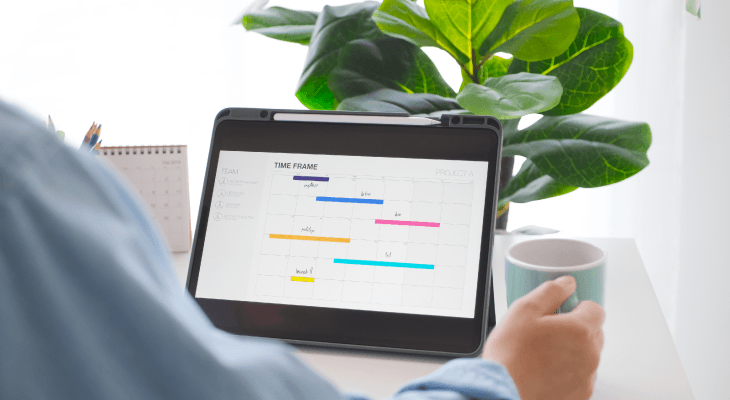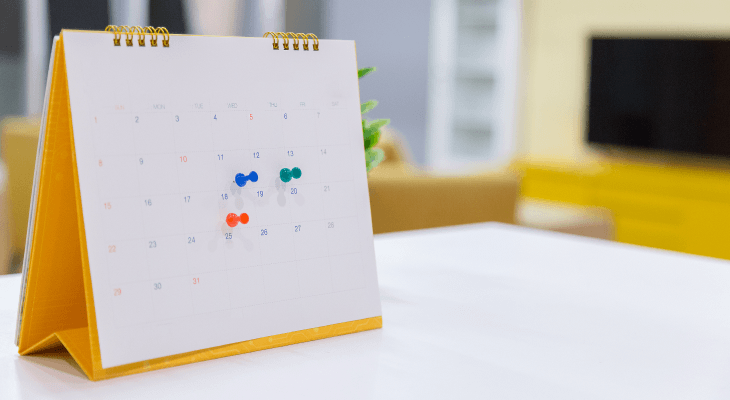9 Things To Do for a Successful Group Project
A group assignment doesn’t always have to end in bad blood. Here are 9 ways to manage your group and ensure a successful project.
Published 14 Oct 2021

Ah, group assignments. There is nothing a student fears more than having their grade depend on their ability to work well with others.
If you’re lucky, you get to group up with reliable friends. If you’re not, you’ll have to believe that the strangers you’re assigned to are responsible enough to not plagiarise and actually submit their work on time.
However, it’s not just all luck. Here are some ways you can take control and make sure that your group performs well.
#1. Appoint a leader

First thing first, appoint a team captain. This is important. Having a leader will ensure that someone is taking charge and making sure that everyone is working together as a group. Without one, the group may feel unfocused and without direction, which could negatively affect the outcome.
The best way to go about selecting a leader is to identify the group’s emergent leader — someone who naturally fills in the leadership role due to their personality and charisma — and appoint them to the role. If no one fits the description, vote for the person who you know is the most responsible.
Remember, the leader will be in charge of keeping track of everyone’s work on top of their own. You will want someone who knows how to manage a team responsibly.
#2. Dissect the instructions

Together with your group members, read the instructions carefully. It won’t do you any good if you start the project early only to get it wrong because you failed to read the instructions.
Take note of all the important points by asking yourself these questions:
- What is the project about?
- What form should the final product be in (essay, presentation, video)?
- Is there a specific theme you have to follow?
- Is there a certain format you need to follow when submitting your work?
- What are the important dates (proposal submission, presentation and final project deadlines)?
Make sure you understand the instructions completely before you start planning everything out. If you’re still confused, check with your group if you need to consult the lecturer.
#3. Be clear about everyone’s roles

Aside from the leaders, what other roles are required in the group? Do you need to reach out to companies and brands for the project? Do you need a videographer? Is there someone who’s good at grammar that can proofread your written assignment?
Divide the roles according to each member’s strengths. Go into the details of what is expected of them and leave no details behind. The clearer everyone is about their responsibilities, the better they can perform.
It’s okay if you’re not entirely confident with your role. The main purpose is so that everyone knows their responsibilities. You will be in charge of your domain but you can still ask for help from other members. After all, you are a team.
#4. Draft a project timeline

How long do you need to conduct the initial research? Will you have to interview anyone or shoot any video? How long will it take you to edit the video? Take some time to identify the various stages in your project as this will give you a sense of the entire timeline.
Once you’ve identified the stages, it’s time to plan it out. Discuss with your members on the appropriate timeframe for each stage. Jot down important dates like the interview date, deadline for proposal and final presentation. Build your timeline around these important dates. If you’re planning to have meetings, put it in the timeline.
A project timeline can be very useful as it will keep you organised and ensure that everyone is informed and on the same page.

#5. Set your own deadlines

When it comes to group projects, it’s best to stick to Murphy’s Law — anything that can go wrong, will go wrong. As such, having enough time to deal with this possibility is important.
Although your lecturer would already have set a deadline for the project, you should set an earlier deadline for your group just to be safe. You might have to deal with incorrect usage of citation or even blatant plagiarism.
By making sure everyone submits their work early, you will get ample amount of time to check, proofread and fix any mistakes.
Apply for university with EduAdvisor
Secure scholarships and more when you apply to any of our 100+ partner universities.
Start now#6. Schedule regular meetings

It sounds tedious but it is necessary. Regular scheduled meetings can help you perform better as a group. It’s a great way to check up on each other, keep everyone informed of any notable updates and ensure that the work is being done.
Go though your project timeline and decide as a group on the best time to hold these meetings. Consider scheduling meetings around big stages in your project like after an interview session (to discuss how the interview can be used in the project) or a proposal discussion with the lecturer (to discuss how the project can be improved based on the lecturer’s feedback).
The meetings don’t always have to be in person. You can easily catch up through video call instead of a face-to-face meeting.
#7. Check on each other’s work

While the leader is in charge of everyone, the sole responsibility shouldn’t fall on them. You are a group and you have to help each other out.
Whenever possible, check on each other’s work. Make sure that they are on time and doing the right work. It would be very bad if they were to submit their work on time but the quality of the work is subpar. Even worse is if they get their entire part wrong.
Instead of having to deal with this later on when you’re closer to the deadline, it’s best to continuously check on each other throughout the project. Fixing any mistakes early on will make the process easier for everyone.
#8. Keep everything on a shared online drive

Nowadays, everything is done online. Why should your group project be any different? Whatever work you’re doing, make sure it’s all kept on a shared online drive.
Google, with its variety of compatible apps, is a great option for this. You can keep all your data on Google Sheets, dump all your writings on Google Docs and design your presentation on Google Slides. Need to store some files? Just upload it to the group’s shared Google Drive.
By keeping everything online, you won’t have to worry about losing any unsaved work due to the infamous blue screen of death. Additionally, this lets everyone check on each other’s progress.

#9. Keep an open communication

Finally, communicate. It’s not a group project if you don’t work together. Make sure you are in contact with each other. Don’t just delegate the tasks and disappear. Keep an open communication and encourage everyone to speak up.
If there are any problems, bring it up so you can deal with it as early as possible. If there’s something stopping a member from delivering their work, let everyone know so they can adjust the workload accordingly.
Things may not always go as planned but if you keep everyone updated and in-the-know, the group can work together to adapt and adjust accordingly.
Group assignments don’t have to be hell on earth. As long as you know how to organise and manage your group, you will do just fine.






